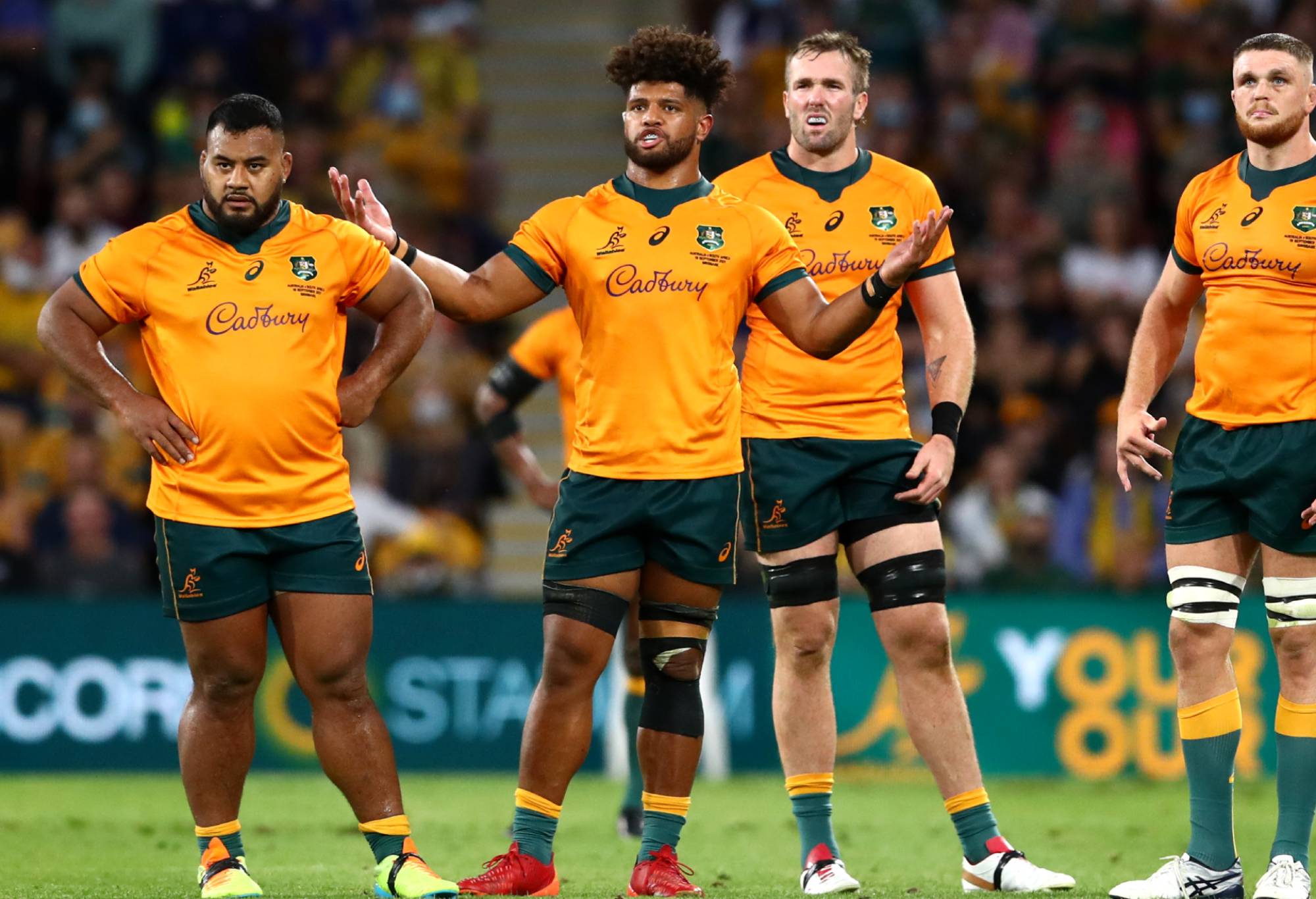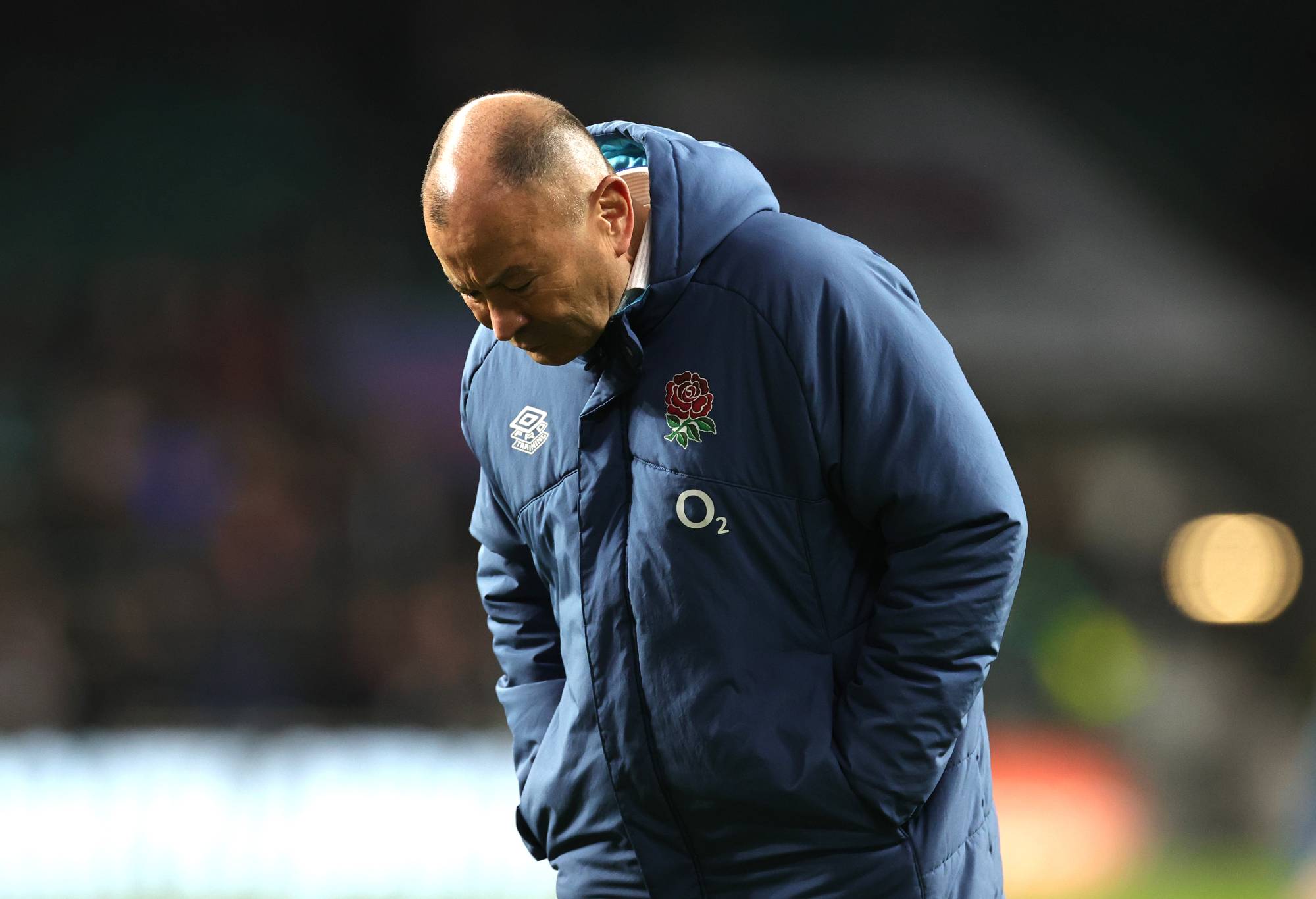'Run-on debut like no other': Junior Wallabies flyer announces himself to the world after stunning hat-trick
In 15 minutes, Tim Ryan didn’t just put a smile on Joe Schmidt’s face, he announced himself to the Australian public by scoring a…
No, it’s not April Fools Day – but a report from England could make you think it is.
The Rugby Football Union is considering several bizarre reforms to a Premiership and Championship hybrid cup competition, including a sin-bin ‘power play’.
The tournament is set to take place on Six Nations and autumn internationals weekends from the 2023-24 season onwards.
The UK Telegraph has revealed some reforms including this stinker – “A sin-bin ‘Power Play’, where each captain can nominate an opposition player to spend 10 minutes in the bin once a game.”
Other, less barmy ideas include incentivising tries scored from outside the opposition’s 22, and reducing the time wasted by reset scrums.
“The proposals will be presented to the RFU board on January 25 before a council meeting on February 14. From there, any successful motions passed will still require World Rugby approval,” the Telegraph reported.
Australia’s top players will be rested for up to three Super Rugby rounds in a bid to keep them fresh leading into the World Cup.
The Sydney Morning Herald reports coach Dave Rennie and Wallabies general manager Chris Webb will work with clubs on management plans for the key players.
The All Blacks had a similar scenario in place last season and it caused plenty of controversy as big name players were missing from the competition at a time when rugby is in need of as much star dust as possible to retain interest in domestic competition.
Blues coach Leon MacDonald has already confirmed All Blacks players will be given plenty of rest during next year’s Super Rugby competition, to keep them fresh for the World Cup.
Ahead of the last World Cup, All Blacks were rested for at least two Super Rugby games over the season and weren’t expected to play for more than 180 minutes over the first three rounds of the competition, and never more than five games in a row.
Restrictions for next year have been agreed. In 2007 Graham Henry pulled out 22 players from half of that year’s Super Rugby competition.
The Herald said some Wallabies would receive up to five weeks off in a row under a draft agreement between the states and Wallabies.
There was a similar plan in place before the 2019 World Cup, the Herald said.
It was reported that Wallabies who had heavy workloads in 2022, and who will be regular starters for in Super Rugby as well, will sit out as many as three games in the 14-game regular season. Not every Wallabies player will be asked to rest that much, however, with a tiered system likely to be implemented.
“Players who play big minutes for club and country, such as Allan Alaalatoa, Rob Valetini, Nic White, Len Ikitau, and older players like Jed Holloway, Dave Porecki, Michael Hooper and Cadeyrn Neville, would likely sit out more games than lightly-used Wallabies like Fraser McReight, Jock Campbell and Mark Nawaqantiwase, who would benefit from more game time, not less,” the Herald reported.

Rob Valetini of the Wallabies. (Photo by Chris Hyde/Getty Images)
Rugby Australia CEO Andy Marinos told the Herald the planning for maximising the Wallabies’ prospects at the 2023 Rugby World Cup was “well advanced”.
“I know Dave and the management team and the medical team have really engaged with the Super Rugby coaches about the program for next year,” Marinos said.
“Those conversations are well advanced and so as soon as we get back they’ll be going around and sitting down with each of the coaches and individual player plans for the pre-season and into next year.”
Super Rugby Pacific has a future beyond 2023 with Rugby Australia deciding against going it alone, according to a report in the New Zealand Herald.
The NZH said it “understood that a deal has been reached that will see Australia keep its five teams in Super Rugby Pacific under temporary financial arrangements in 2024, with a view to agreeing a longer-term, sustainable revenue split that may begin 2025, but more likely 2026.
“The agreement between New Zealand and Rugby Australia brings to an end a prolonged period of uncertainty and tension, which erupted mid-way through this year when chairman of the latter, Hamish McLennan, said: “All bets are off from 2024 onwards with New Zealand.”
There was debate on both sides of the ditch about whether it was a genuine threat to quit Super Rugby or a gambit to force a new agreement about how broadcast revenue is split.
“It would appear that it was more likely the latter as Rugby Australia has found itself under extreme financial duress in the last two years due to signing an underwhelming broadcast deal in 2021,” wrote Gregor Paul in te NZH.
“The union had been offered a continuation of its existing $58m a year deal with Fox Sports, but turned it down to explore competitive offers and ended up with just $28m-a-year from Channel Nine.”
Rugby officials have defended the manner in which Australia halfback Nic White was allowed to play on after he was concussed against Ireland this month but accepted he should have been removed from the game.
White took a blow to the head in the second half at Lansdowne Road on November 19. As he was leaving the field for a head injury assessment, he stumbled twice. Those stumbles were “Criteria 1” displays of possible concussion and should have automatically resulted in White’s permanent removal from the field.
But White passed the HIA by an independent match day doctor and returned to play the last 26 minutes.
The decision was widely criticised, prompting an independent review ordered by the Six Nations.
The review said the medical team was correct in bringing off White for an HIA, but the match day doctor and Wallabies doctor were reviewing video of the head knock and missed White’s stumbles coming off the field.
“The second incident was not communicated to either doctor and therefore, in performing White’s HIA, (they) did not review any additional footage,” World Rugby said on Tuesday.
Not until after the match when the medical team was made aware of the stumbles was video of them reviewed. White was then given a Criteria 1 diagnosis. He was stood down for 12 days, returned home, and missed the Wallabies’ last tour match against Wales last weekend.
“Discrepancies around process and communication, rather than interpretation of player signs, were therefore the key factors to affect this particular HIA process,” World Rugby said.
The governing body said its HIA at the elite level for identifying head impacts “is close to 90% accurate.”
Handre Pollard believes England have left it too late to sack Eddie Jones after recalling it took Rassie Erasmus over a year to transform South Africa into World Cup winners.
Jones’ position is in doubt following a disastrous autumn that produced only one win in four Tests, completing England’s worst year since 2008, and a decision on the head coach’s future is due from the Rugby Football Union next month.
The RFU must decide whether to stay loyal to Jones despite results or to replace him knowing the World Cup opener against Argentina is just nine Tests and 10 months away.
South Africa were in a similarly precarious position when Erasmus took over in March 2018 yet by the end of the following year he had turned them into global champions.
Erasmus’ Springboks revival is frequently held up as an example of how a nation can be successful at a World Cup even with a late change of coach but Pollard, their fly-half general, insists the revolution did not happen overnight.
When asked if based on his experience Jones’ replacement has the time to make England a force in France next autumn, Pollard said: “It’s a difficult one.
“It’s tough because you’ll basically have that Six Nations and a few warm-up games. It’s not a lot of time, so it will be tough. I’m not sure if it’s possible, but you never know.
“We felt Erasmus’ impact immediately because of the personality he is and the way he does stuff.
“But in terms of the rugby and on-field stuff, he said that with our new defensive system it will take 18 games. He knew that’s how long we had before the World Cup.

LONDON, ENGLAND – NOVEMBER 26: Eddie Jones, the England head coach looks on during the Autumn International match between England and South Africa at Twickenham Stadium on November 26, 2022 in London, England. (Photo by David Rogers/Getty Images)
“It probably clicked a little earlier than 18 games, but I would say it took us a good year to find ourselves, really understand each other and know where we stood with each other. And then in 2019 we really kicked off with the results.
“The previous year 2018 was up and down when we were trying to find our feet. It took about a year I’d say.”
A leading contender to replace Jones is Steve Borthwick, his former number two and now director of rugby at Pollard’s new club Leicester.
Pollard has been limited to one aborted replacement appearance for Tigers against Saracens in late September and is not due back until Christmas at the earliest, but he has already seen enough of Borthwick to know he would make a good England head coach.
“Steve’s definitely got the qualities to be an international coach. When that time will come we’ll see, but he’s definitely on his way,” Pollard said.
“Steve demands very high standards, we all know that. But it’s not a results-driven club, it’s about getting better day by day, regardless of whether we win or lose. Nothing changes.
“When emotion sometimes gets the better of some coaches, with him it’s every Monday, reset, and the same story.
“Win or lose we look to improve and it’s nice as a player. It’s not a roller coaster. Every week is the same.
“Steve is different. I’ve not seen anyone like him before. He really dives into the technical and analytical side of rugby, which is pretty cool. The game is developing so you have to stay with it. He’s great in that sense.
“He doesn’t speak too much but his all-round personality means you know where you stand with him, which is always nice.”
© AAP